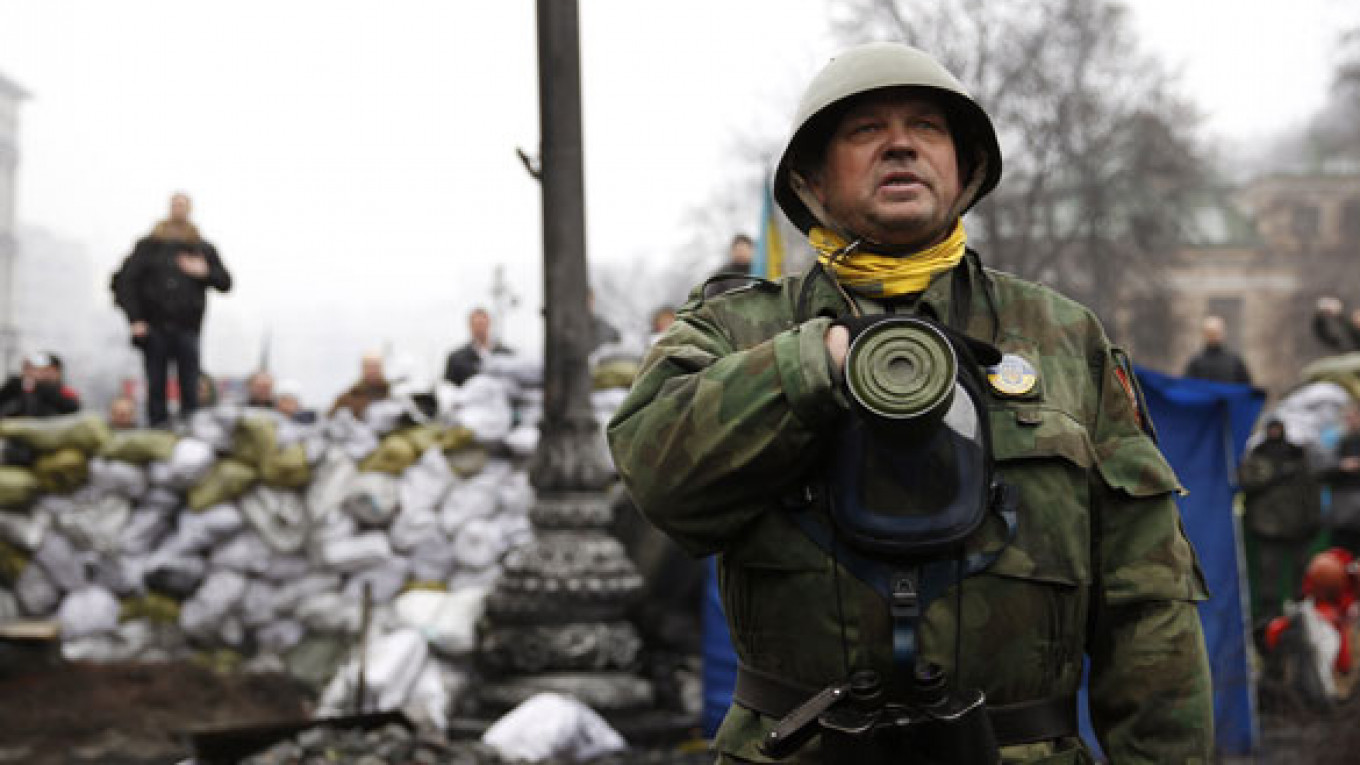BRUSSELS — European foreign ministers on Monday sought ways to foster a solution to the crisis engulfing Ukraine, saying that nearly three months of protests show the need for the government to reach a political compromise with the opposition.
Talks so far in Ukraine have yet to yield progress and despite President Viktor Yanukovych's strategy of trying to buy time, he cannot avoid discussing reforming the country's constitution, German Foreign Minister Frank Walter-Steinmeier said.
"The people in Ukraine will not accept bad compromises," he said, referring to the anti-government demonstrations that drew tens of thousands into the streets of Kiev again over the weekend.
EU foreign policy chief Catherine Ashton was to brief the 28 foreign ministers at their meeting in Brussels about her two days of talks with the Ukrainian leadership and the opposition last week.
Ukraine has been rocked by nearly three months of anti-government protests sparked by Yanukovych's refusal to sign an agreement with the EU and accept a $15 billion loan package from Russia instead. The political deadlock is also pushing Ukraine's economy closer to the brink, and its currency and foreign reserves are tumbling.
Czech Foreign Minister Lubomir Zaoralek said Monday that the EU must be ready to impose sanctions on Ukraine if the government persists in using violence against protesters, warning against Soviet-style authoritarianism.
Speaking ahead of the meeting of EU foreign ministers, Zaoralek said it was unacceptable to see human rights being blatantly violated on the borders of the EU.
"It is something totally unacceptable, this violence and the role of the authorities in intimidation. It is something that is very close to our experience in the socialist past," Zaoralek said in his first interview with foreign media since being appointed at the end of January.
"I am absolutely convinced that if there is an escalation of violence, I see no chance to avoid sanctions. The EU must use all tools at our disposal," he said.
Sanctions on Ukraine have become a point of divergence between the EU and the U.S..
In secret recordings released on the Internet last week, Victoria Nuland, the U.S. assistant secretary of state for European affairs, was heard complaining to the U.S. ambassador to Kiev that the EU was too soft, and she suggested the U.S. should adopt a "f*** the EU" attitude.
In a separate recording, one of the EU's top foreign policy experts, Helga Schmid, was heard telling the EU ambassador to Ukraine that she was worried about Europe's perceived weakness and the criticism being leveled at it.
But while the U.S. is keen to put pressure on Ukrainian President Viktor Yanukovych and a possible sanctions package is already being prepared in Congress, EU member states are far more hesitant.
Diplomats indicate that Germany, Britain and France are among the major countries opposed to such a move, which they argue will further complicate efforts to bring Yanukovych on their side and will ultimately play into Russia's hands.
Material from Reuters is included in this report.
A Message from The Moscow Times:
Dear readers,
We are facing unprecedented challenges. Russia's Prosecutor General's Office has designated The Moscow Times as an "undesirable" organization, criminalizing our work and putting our staff at risk of prosecution. This follows our earlier unjust labeling as a "foreign agent."
These actions are direct attempts to silence independent journalism in Russia. The authorities claim our work "discredits the decisions of the Russian leadership." We see things differently: we strive to provide accurate, unbiased reporting on Russia.
We, the journalists of The Moscow Times, refuse to be silenced. But to continue our work, we need your help.
Your support, no matter how small, makes a world of difference. If you can, please support us monthly starting from just $2. It's quick to set up, and every contribution makes a significant impact.
By supporting The Moscow Times, you're defending open, independent journalism in the face of repression. Thank you for standing with us.
Remind me later.






